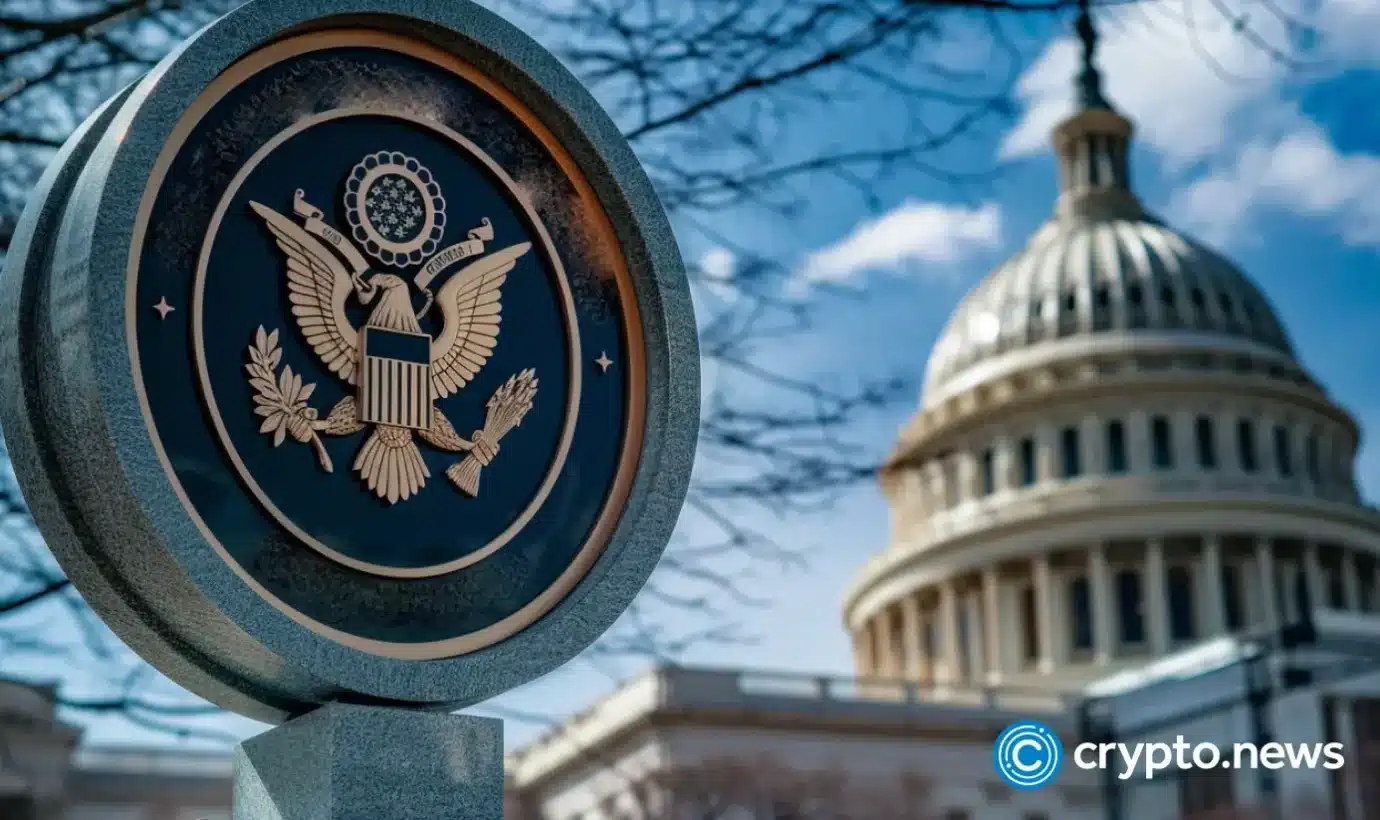Political puppetry or regulatory overreach? SEC’s independence under the spotlight

Has the SEC lost its independence, becoming a puppet of government politics rather than a fair regulator in the crypto industry? Experts weigh in.
Table of Contents
Lately, the Securities and Exchange Commission (SEC) has been in the spotlight, and not for the best reasons.
President Joe Biden recently vetoed a bill aimed at overturning an SEC bulletin that set specific accounting standards for firms handling cryptocurrency.
The bill, if passed, would have repealed the SEC’s cryptocurrency accounting guidelines, known as SAB 121. These guidelines require institutions holding crypto assets to record them as liabilities on their balance sheets.
In his veto letter dated May 31, Biden stated, “My Administration will not support measures that jeopardize the well-being of consumers and investors.
Appropriate guardrails that protect consumers and investors are necessary to harness the potential benefits and opportunities of crypto-asset innovation.”
Earlier in the month, the House and Senate had both voted to repeal SAB 121. The House passed it with a 228-182 vote, supported mainly by Republicans but also by 21 Democrats.
The Senate followed suit with a 60-38 vote, including backing from prominent Democrats like Senate Majority Leader Chuck Schumer.
However, overturning a presidential veto is a tall order, requiring a two-thirds majority in both houses, something that seems unlikely in the current political climate.
Critics argue that this complicates the involvement of financial institutions with crypto companies, making it harder for them to innovate and integrate crypto into mainstream finance.
The Blockchain Association tweeted their discontent, saying they were “disappointed that the administration chose to overrule bipartisan majorities in both Houses of Congress who recognized the harm created by SAB 121.”
Cody Carbone from the Digital Chamber called the veto “a slap in the face to innovation and financial freedom.”
Sheila Warren from the Crypto Council summed it up: “Disappointed but not surprised by the veto of SAB121 CRA. As I often say, silence is golden because some positions, once publicly stated, wind up being tough to walk back.”
So, where does this leave the SEC? Its legacy and authority seem to be on shaky ground. Let’s see if the SEC has really lost its footing.
Consecutive losses for the SEC
The U.S. SEC has been having a rough ride lately, and the crypto community has been taking note.
The most notable case is the partial victory for Ripple (XRP) in July 2023, when the U.S. District Court for the Southern District of New York ruled on whether Ripple’s digital token XRP is a security.
The court decided that XRP sold through Programmatic Sales did not qualify as investment contracts, meaning they were not securities.
This was a crucial win for Ripple and a setback for the SEC, which has been adamant about regulating the crypto industry as if it were dealing with traditional securities.
To break it down, XRP sales through exchanges, where buyers and sellers don’t know each other, were ruled as not securities. The court found that these transactions didn’t meet the third prong of the Howey Test, which looks at whether there is an expectation of profit based on the efforts of others.
However, sales directly to institutional investors were considered securities. This mixed ruling showed that while the SEC’s regulatory reach is there, it’s not absolute.
Moving on to another critical blow, in August 2023, the SEC faced defeat in its case against Grayscale Investments.
The U.S. Court of Appeals for the D.C. Circuit ruled that the SEC acted “arbitrary and capricious” by denying Grayscale’s application to convert its Bitcoin Trust into a spot Bitcoin exchange-traded fund (ETF).
The court pointed out that the SEC had previously approved Bitcoin futures ETFs, which operate on similar market surveillance mechanisms as the proposed spot BTC ETF.
This inconsistency suggested the SEC’s flawed logic and was a substantial win for Grayscale and the entire crypto industry, questioning the SEC’s regulatory stance.
The SEC’s stance on Ethereum (ETH) has also been a rollercoaster. In May 2024, the SEC took a surprising step by approving applications to list and trade spot Ethereum ETFs.
This was a big deal because up until then, only Ethereum futures ETFs had been given the green light. By approving spot Ethereum ETFs, the SEC indirectly acknowledged Ethereum more as a commodity than a security.
This classification could limit the SEC’s regulatory power over Ethereum and potentially other crypto assets, shifting more regulatory responsibilities to the Commodity Futures Trading Commission (CFTC).
The SEC’s recent defeat in the case against Digital Licensing Inc., also known as Debt Box, adds to its string of setbacks.
Just days ago, a federal judge ordered the SEC to pay approximately $1.8 million in legal fees after dismissing the case without prejudice, meaning it could potentially be reopened.
The SEC had accused Debt Box of defrauding investors of at least $49 million. However, the case was marred by issues, including false statements and misrepresentations, leading to the resignation of two SEC lawyers.
The judge criticized the SEC’s conduct, particularly regarding the temporary restraining order and asset freeze. Debt Box celebrated the ruling as a step toward justice and transparency.
The ongoing tussle intensifies
The SEC has been under fire for its heavy-handed regulation of the crypto industry, and recent developments have only intensified the scrutiny.
First, in June 2023, the SEC initiated a lawsuit against Coinbase, alleging it never registered as a broker, national securities exchange, or clearing agency, thereby evading disclosure requirements.
Coinbase has argued that the SEC’s enforcement approach is designed to stifle the digital assets industry.
In a recent filing, Coinbase claimed that the SEC is not interested in creating clear and fair guidelines for the industry but rather aims to “choke” it.
Coinbase pointed out that even SEC Commissioner Hester Pierce, a known pro-crypto advocate, has criticized the agency for its lack of transparency and for hindering innovation.
Second, the SEC’s actions against Ethereum-related entities have also raised eyebrows. Despite the SEC approving spot Ethereum ETFs, signaling ETH’s status as a commodity, the agency continues to target major players in the Ethereum ecosystem.
Uniswap (UNI), for example, received a Wells notice from the SEC, indicating potential securities law violations. Uniswap and other Ethereum-based companies argue that the SEC’s classification of tokens as securities is outdated and inconsistent.
Then, there’s Consensys, founded by Ethereum co-founder Joe Lubin, which has taken a more proactive approach by suing the SEC.
The SEC had issued a Wells notice to Consensys, focusing on its MetaMask wallet and its staking features. This lawsuit is an effort to push back against what Consensys sees as the SEC’s “unlawful seizure of authority.
Community and experts weigh in
The recent actions of the SEC have sparked a wide range of discussions across social media, with many questioning whether the agency has become a puppet of the government.
On Twitter, the sentiment is one of frustration and disbelief. Users are vocal about their dissatisfaction with the SEC’s decisions, particularly President Biden’s veto of a bill aimed at repealing SAB 121.
On Reddit, the discourse is even more intense, with users expressing strong opinions about the SEC’s actions.
User sentiments on Reddit reflect a deep mistrust of the agency and suggest that political motivations might be driving its decisions. For instance, some users speculate that the SEC is acting under the influence of lawmakers who do not fully understand the crypto market.
One user pointed out the inconsistency in the SEC’s decisions, questioning why the agency approved a futures ETF for what it considers an unregistered security.
Another user expressed skepticism about the SEC’s motives, suggesting that the agency might be trying to time the market to dampen bullish trends in the crypto space.
Comments also reflect a sense of frustration over the SEC’s perceived failure to provide clear guidelines, leading to legal uncertainties and challenges for crypto businesses.
Financial expert Alexey Krichevsky, author of the Telegram channel “Economism”, comments exclusively to crypto.news, echoed these sentiments. He suggested:
The SEC lost its independence just with Biden’s presidency. Before that, the commission had much more influence not only in the crypto market but also in other assets. Now, it is clear that the Biden administration is actively flirting with cryptocurrency users in the U.S. while trying to limit their crypto assets and lobbying for the digital dollar.
Alexey Krichevsky
Krichevsky argued that the administration’s actions, including the rapid approval of Bitcoin and Ethereum ETFs, indicate a political strategy. He also challenged the rapid pace at which the SEC approved the Ethereum ETFs, implying that such decisions could be politically motivated rather than based on thorough regulatory review. he mentioned:
The SEC instructed investment houses to correct several flaws in a couple of days to approve the launch as quickly as possible. Unless this is a tool in the political fight against Trump, who is openly in favor of cryptocurrencies, there are no other options — the mood of the authorities could not change so quickly.
Alexey Krichevsky
While the frustration and suspicion are palpable, it’s essential to consider the SEC’s perspective and its mandate to protect investors. The agency has argued that its regulations are designed to safeguard the financial system and ensure transparency.
In totality, clear, fair, and consistent guidelines are necessary to foster innovation while ensuring investor protection. The perception of the SEC as a political tool undermines its credibility and effectiveness, and it should change.
Disclosure: The views and opinions expressed here belong solely to the author and do not represent the views and opinions of crypto.news’ editorial.
















